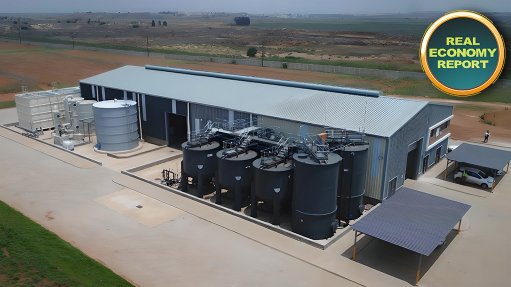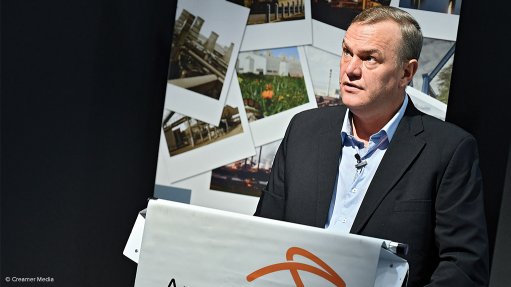Busa, B4SA raise deep concerns over lack of due process on NHI adoption
Business Unity South Africa (Busa) and Business for South Africa (B4SA) have written to the National Council of Provinces (NCOP), as well as to Deputy President Paul Mashatile to raise their deep concern regarding a lack of due process in the NCOP Select Committee on Health and Social Services on their adoption of the National Health Insurance (NHI) Bill without any amendments on November 21.
Busa and B4SA say no consideration was given by the select committee to the many constitutional issues, both procedural and substantive, in the Bill, which were raised by four provinces and a wide range of stakeholders.
“This amounts to a serious and significant procedural lapse and a violation and disregard of Parliament’s own public participation model, fundamentally undermining the principles of participatory democracy on which our Constitution is based,” the organisations say.
Busa and B4SA have requested in their letters to the NCOP and the Deputy President, that the NCOP not consider the Bill during its plenary session on November 29, but rather defers consideration of the Bill until the Select Committee has substantively discussed and engaged on the comments and proposals put forward by stakeholders, as well as those of the provincial legislatures and the Department of Health itself.
A thorough and proper legislative process would require these constructive inputs and proposed amendments to be circulated, properly considered and only then voted upon, Busa and B4SA state.
Busa CEO Cas Coovadia comments that for the National Assembly and the NCOP to disregard proposed amendments that will have a beneficial and tangible impact on citizens, or indeed would prevent harm to citizens, in the interest of rushing the Bill through Parliament, is unconstitutional. It makes a mockery of due process and portrays the NCOP as nothing more than a rubber stamp.
“Our belief is that the Bill in its current form is utterly unimplementable and will have severe consequences for South Africa, the economy and every citizen, for generations to come.
“The self-evident truth is that there is no money to fund this NHI Bill, and there is no clarity over its benefits, contracting terms, capacity, systems, management, governance or even a plan that begins to outline a viable approach to these fundamental considerations.
“We have also repeatedly cautioned against a single fund for the NHI that will require taxes to be raised to unsustainable levels. This is unaffordable, unsustainable and presents a material risk to the economy,” Coovadia says.
COLLABORATION ISSUE
Critically, the Bill does not provide for public-private sector collaboration, which is essential for the NHI’s success.
To address this, Busa and B4SA have proposed an amendment to Section 33 of the Bill, which currently says that when the Minister of Health declares that the NHI is fully implemented, medical schemes will not be able to cover or pay for any health service offered by the NHI.
This impacts all employed citizens, including public sector employees who currently enjoy medical aids as a material employee benefit through ParMed, GEMS, PolMed and others. By limiting the role of the medical aids, it also imperils the entire private healthcare sector, which depends on them for financing.
As currently drafted, the Bill limits access to healthcare for more than nine-million South Africans, infringing their constitutional rights. No other country in the world has a legislated limitation on the role of private health insurance, not even the wealthy countries with a substantial tax base and extensive publicly funded healthcare, Busa and B4SA say.
B4SA steering committee chairperson Martin Kingston notes that government’s mandate is to act in the best interest of all of its citizens. It is totally irresponsible to rubber stamp into law legislation that will have such a severe impact on the country and her people, ignoring the legitimate and substantive inputs that have been made by multiple stakeholders to date.
“We recognise that the passing of this Bill is a key aspect of the upcoming election, but it must properly take into consideration due process and afford the necessary time and engagement to achieve that,” he states, adding that the ramifications are significant and there are bound to be numerous legal challenges to the Bill.
The consequence will in all likelihood be that the NHI will not be implemented at a time when stakeholders all agree that it is imperative to address the many challenges facing the country’s healthcare sector.
“The private sector has made repeated suggestions as to how reforms can be immediately implemented in order to improve access to quality healthcare for many more millions of South Africans.
“The introduction of low-cost medical aid options is one such example. All that is required is for the Council of Medical Schemes and the Minister of Health to approve them,” Kingston states.
These proposals have been on the table since 2015 but no satisfactory explanation has been provided as to why there appears to be regulatory paralysis.
Moreover, the cost of private medical aid cover could be reduced by more than 20% if the 2019 recommendations of the government's Health Market Inquiry are urgently and responsibly implemented.
“All of these initiatives can start now. This will take further pressure off the public healthcare sector and move universal health coverage forward in a way that supports the NHI, in a meaningful and visible manner,” Busa and B4SA state.
The approach adopted with respect to the NHI Bill, including certain key aspects thereof, has created substantial and widespread uncertainty, which is already impacting investment into the sector, and more broadly for the country.
“By amending Section 33 and clarifying a number of other critical aspects of the NHI Bill, introducing low-cost medical options, and reducing the cost of private care, the country can build a better overall healthcare system with immediate benefit for all. “This will attract more capital and investment into the healthcare sector without the government needing to raise taxes to unsustainable levels or take on additional debt, whilst retaining the country’s precious healthcare workforce,” the organisations conclude.
“These proposed amendments and reforms will strengthen the NHI, to secure access to quality healthcare for all citizens, for generations to come,” concludes Kingston.
Comments
Press Office
Announcements
What's On
Subscribe to improve your user experience...
Option 1 (equivalent of R125 a month):
Receive a weekly copy of Creamer Media's Engineering News & Mining Weekly magazine
(print copy for those in South Africa and e-magazine for those outside of South Africa)
Receive daily email newsletters
Access to full search results
Access archive of magazine back copies
Access to Projects in Progress
Access to ONE Research Report of your choice in PDF format
Option 2 (equivalent of R375 a month):
All benefits from Option 1
PLUS
Access to Creamer Media's Research Channel Africa for ALL Research Reports, in PDF format, on various industrial and mining sectors
including Electricity; Water; Energy Transition; Hydrogen; Roads, Rail and Ports; Coal; Gold; Platinum; Battery Metals; etc.
Already a subscriber?
Forgotten your password?
Receive weekly copy of Creamer Media's Engineering News & Mining Weekly magazine (print copy for those in South Africa and e-magazine for those outside of South Africa)
➕
Recieve daily email newsletters
➕
Access to full search results
➕
Access archive of magazine back copies
➕
Access to Projects in Progress
➕
Access to ONE Research Report of your choice in PDF format
RESEARCH CHANNEL AFRICA
R4500 (equivalent of R375 a month)
SUBSCRIBEAll benefits from Option 1
➕
Access to Creamer Media's Research Channel Africa for ALL Research Reports on various industrial and mining sectors, in PDF format, including on:
Electricity
➕
Water
➕
Energy Transition
➕
Hydrogen
➕
Roads, Rail and Ports
➕
Coal
➕
Gold
➕
Platinum
➕
Battery Metals
➕
etc.
Receive all benefits from Option 1 or Option 2 delivered to numerous people at your company
➕
Multiple User names and Passwords for simultaneous log-ins
➕
Intranet integration access to all in your organisation

















